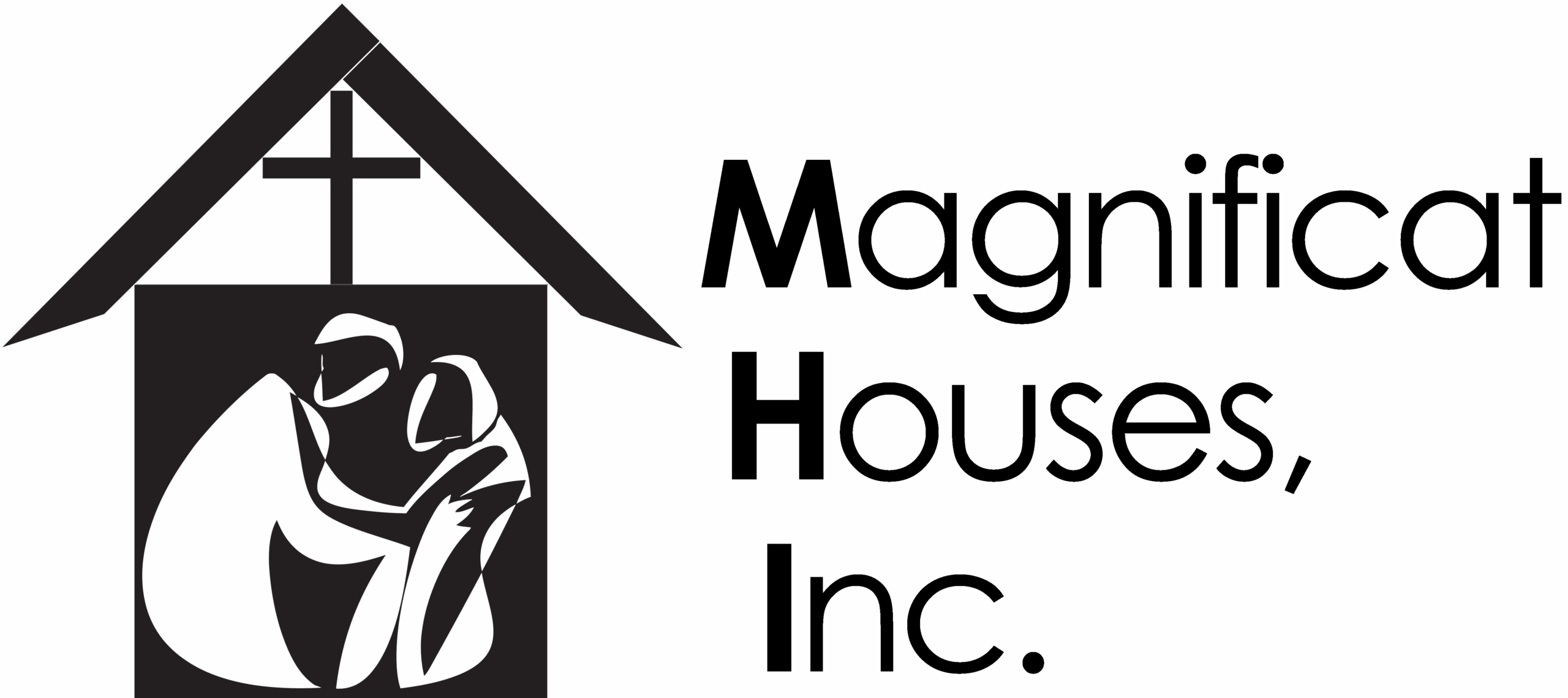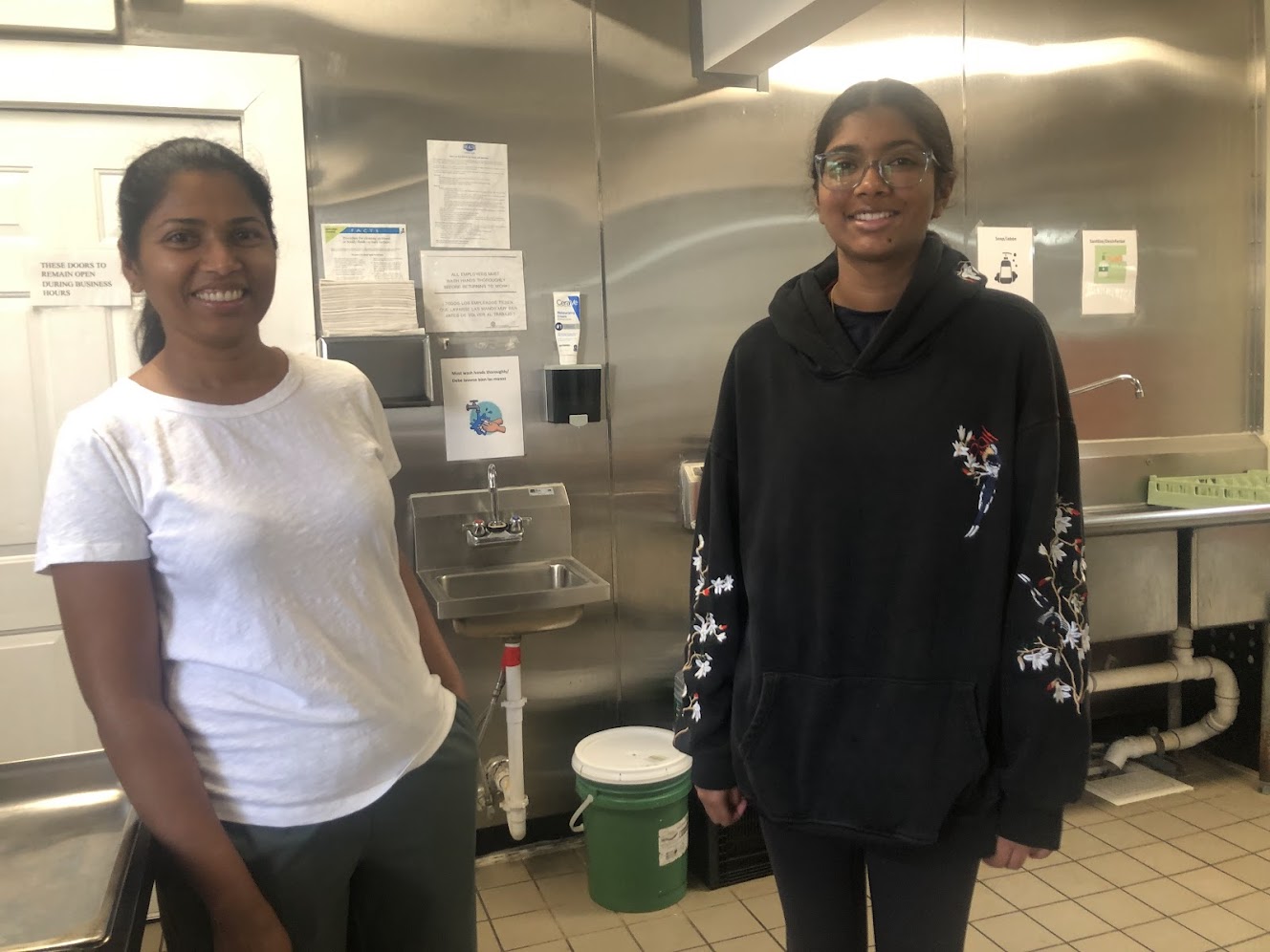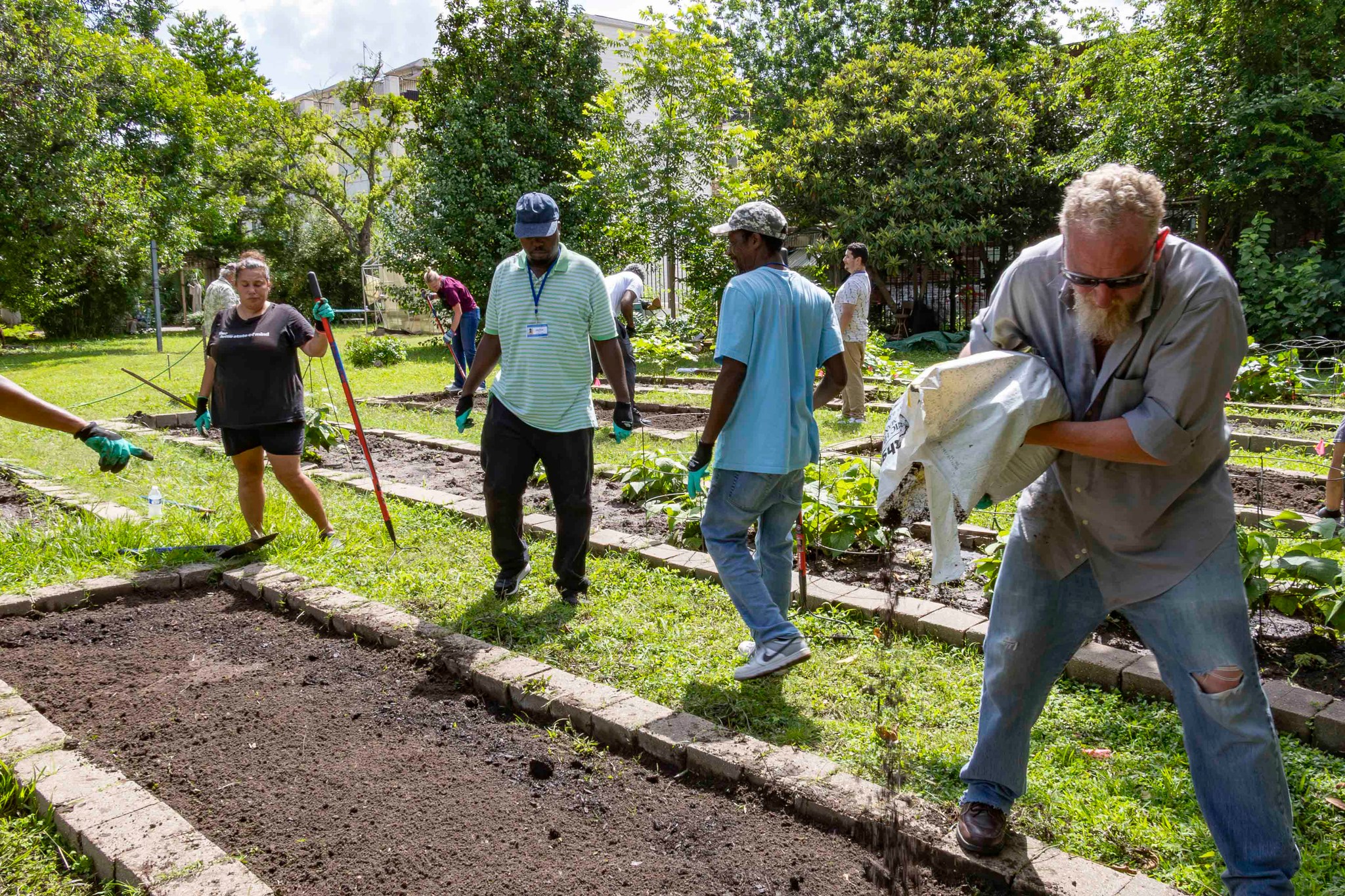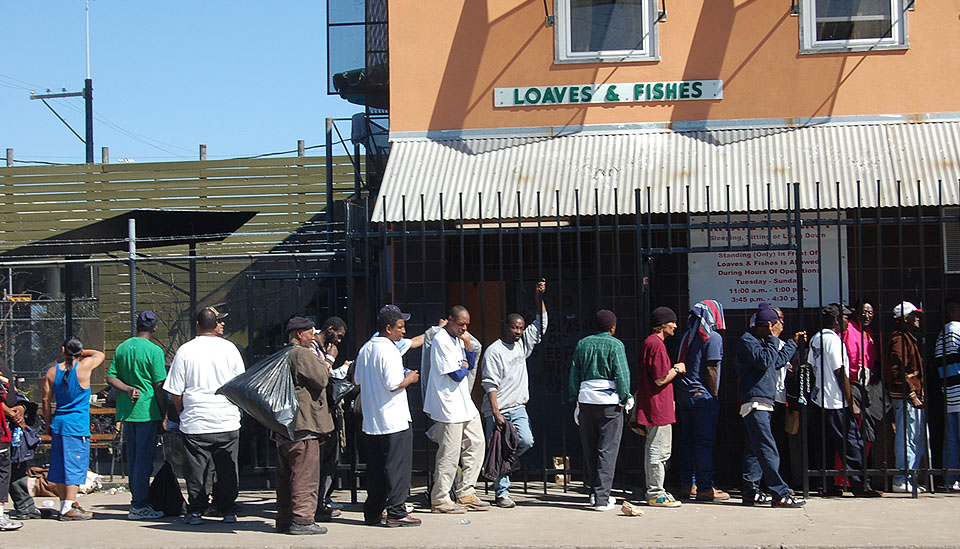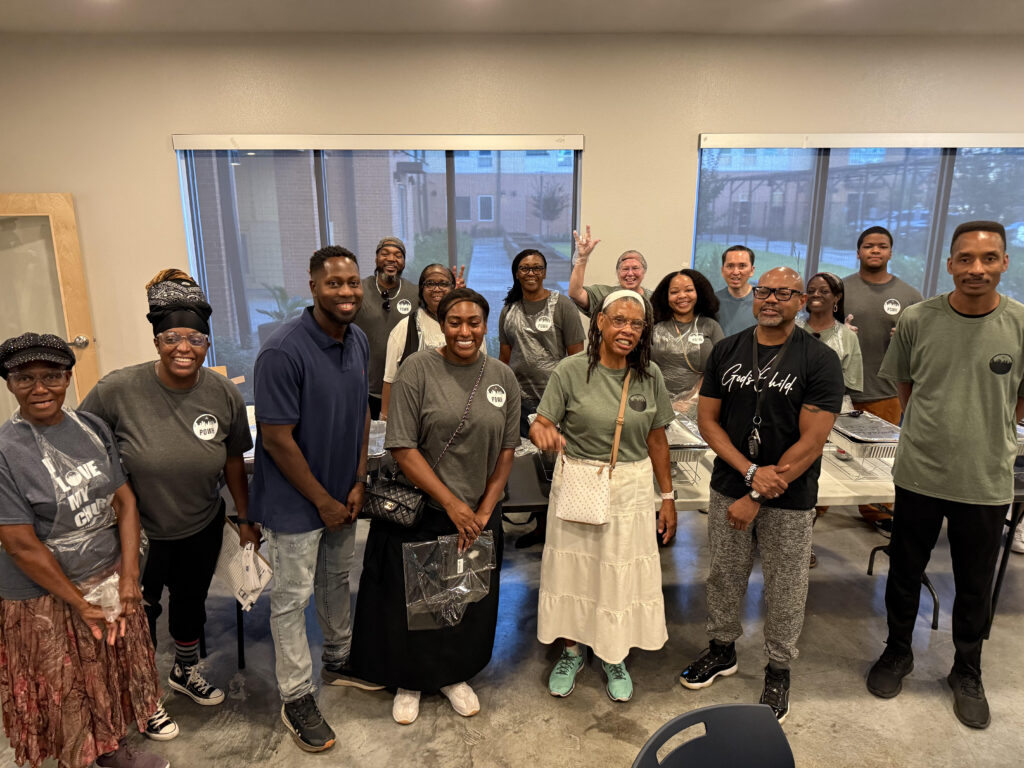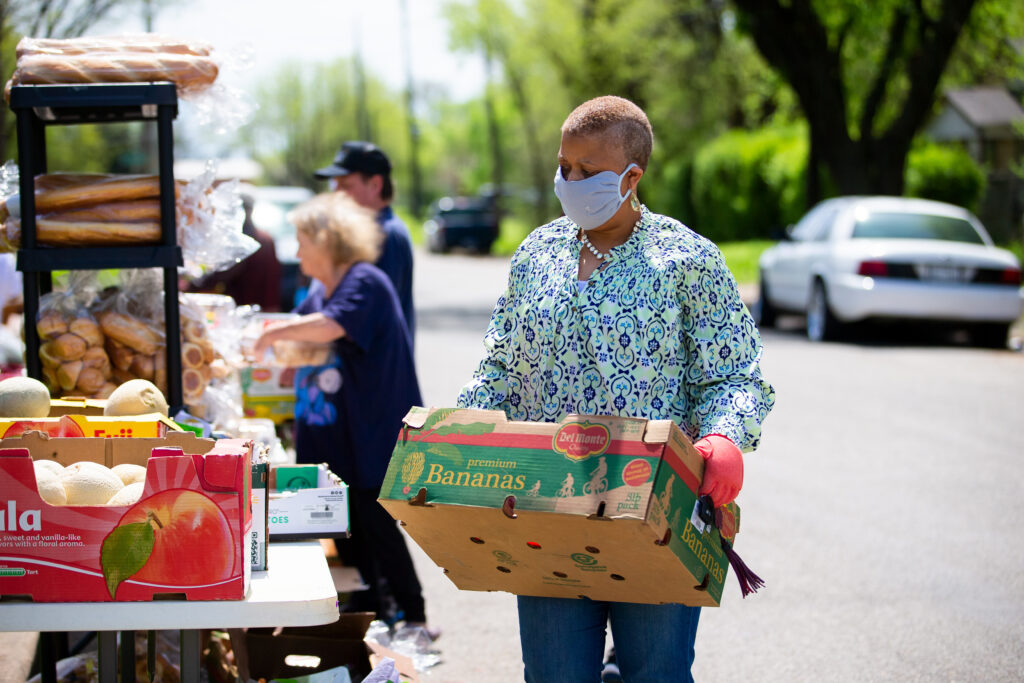What It’s Really Like to Volunteer at St. Joseph’s Clubhouse
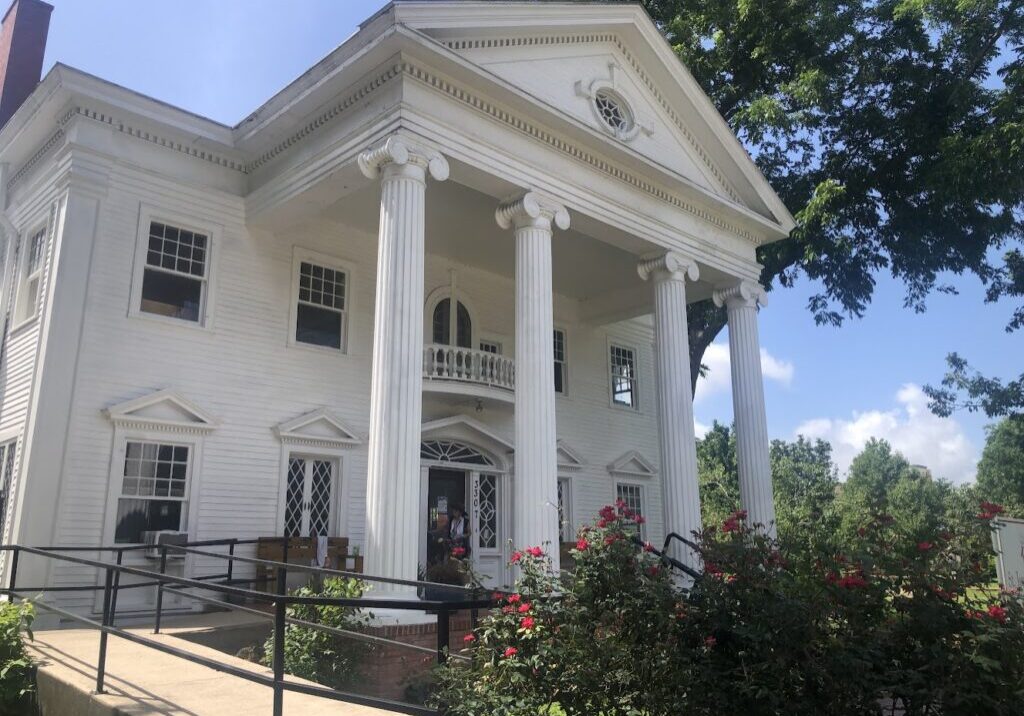
Inside, the place is buzzing. There are people of all sizes and types, everyone busy working on tasks or deep in conversation. The energy is infectious, and it’s immediately clear this isn’t your typical volunteer gig where you show up, do your thing, and leave. This feels like stepping into a hidden world.
An older gentleman sits behind the counter. His booming voice rises above the noise and directs them to sign in, and that’s when Anu makes a spontaneous decision. She’d planned to drop Angeli off, but something about the atmosphere makes her want to stay. They ask for directions to the kitchen and make their way to the back of the house.
The house they’re in, St. Joseph’s Clubhouse, is part of Magnificat Houses’ network of programs, and the international clubhouse model is pretty amazing when you see it in action. The whole point is empowering adults through purposeful work and community. Members here participate in daily programs – gardening, culinary arts, technology, cleaning, answering phones, and more. They don’t just receive services; they help run the place. It builds confidence and shows that recovery is absolutely possible with the right support, structure, and sense of purpose.
The free, lifelong membership for adults with mental health diagnoses provides a safe and supportive environment with social events, meals, and Wellness Recovery Action Plan (WRAP) programming. About 80% of members come in dealing with homelessness and want to take real steps towards independence and stability. What they find is a place to belong.
When Angeli and Anu reach the kitchen, they meet Yolanda C, the staff cook who speaks mostly Spanish, and with her gestures and a few words of English, they quickly to organize a light breakfast for about 30 members, then get to work on the lunch prep routine that usually serves about 40.
Anu and Angeli
It’s hot and busy in that small kitchen– a perfect window into how the clubhouse really operates. Members wander in and out throughout the morning, not asking for something, but as people who clearly feel welcome. Some offer to help with prep work, others check on how lunch is coming along, and you quickly realize that the lines between staff, volunteers, and members aren’t as clear-cut as you might expect. Everyone has something to contribute.
What strikes you as a volunteer is how quickly you slip into their world. These are people going about their daily routines, working toward their goals, sharing their experiences. It feels so natural that it’s hard to remember that the Clubhouse is specifically designed to support people with mental health diagnoses, giving them structure and purpose while they work on their recovery.
As the morning progresses the volunteers witness stories that really drive home what this place means to people. There’s the young man who’s been coming for a year or so, excited to tell everyone that he’s finally landed a part-time job. An older woman who played a beautiful classical melody on the dining room piano now shyly accepts thanks from everyone. A young woman pops in and swears she won’t give up on submitting housing applications no matter how frustrating the process gets. A tall, bearded man stands quietly and then proudly explains that he recently got his GED and is well on his way to a college degree to do social work.
These aren’t success stories that get documented for donors – these are the everyday realities of people going about their lives, working toward their goals, and supporting each other. These ordinary moments of connection are deeply meaningful.
The heat builds in the kitchen as lunch service approaches and the dining room fills with a sense of anticipation. The food is almost ready for the daily ritual that brings everyone together. As a volunteer, meal prep makes you a part of this structure for people who might not have many other sources of routine in their lives.
Lunch service itself is eye-opening. The line moves efficiently, politely, but it’s also clearly a social event. People sit and catch up with each other, share news about job interviews, housing applications, or doctor visits. It’s the kind of everyday social interaction that most people take for granted but that can be incredibly precious for individuals who have experienced the isolation that often comes with homelessness and mental illness.
You see people meet each other at their point of respect, not their point of need. The focus isn’t on what members can’t do because of their mental health diagnoses – it’s on what they can do, what they want to do, and how others can support those goals.
Four hours go by surprisingly quickly for volunteers. Meal prep, serving, and cleanup leave barely a moment to notice how fast the time is passing. But there’s also something else happening – a shift in how you think about your role as a volunteer, joining instead of giving charity.
Magnificat Houses offers many volunteer opportunities in our comprehensive approach to supporting individuals with challenges around homelessness. Volunteers can support programs at RoseMary’s Place residence apartments, the Moran intake center, and in the main office – they’re all within three blocks of the clubhouse. This concentration of resources creates a network of support that can meet people wherever they are in their recovery journey.
But there’s something special about the clubhouse experience that sets it apart from other volunteer opportunities. It’s the way you join in and break down the barriers between those who serve and those who are served. It’s the focus on ability rather than need. It’s simply the recognition that everyone has something valuable to contribute. As a volunteer here you’re participating.
Another powerful aspect to volunteering at St. Joseph’s Clubhouse is how it challenges assumptions. People often come in with ideas about what mental health recovery looks like, or what people with mental health diagnoses can or can’t do. Spending time in the clubhouse environment quickly shows you more. The members you meet have diverse backgrounds, skills, and experiences, and all of them bring unique perspectives and capabilities to bear. Mental illness doesn’t erase a person’s talents or potential, but it creates issues that the clubhouse model is specifically designed to address.
The statistics about the clubhouse’s effectiveness are impressive – with over 20 services offered each day, 85% of members achieve safe housing and take meaningful steps toward long-term independence and stability. But experiencing the day-to-day reality makes those numbers come alive. You see the individuals behind the statistics, the daily choices and small victories that add up to significant life changes.
There’s also something about how the clubhouse members handle setbacks and challenges. Recovery isn’t a straight line, and they understand that, supporting each other through difficult times, and the structure of the clubhouse provides stability even when individual circumstances are unstable. Volunteers join an environment where you can contribute meaningfully without expertise or answers.
The physical space of the clubhouse contributes to this atmosphere too. The old house has character and warmth that you don’t find in institutional settings. Different rooms serve different purposes. A tireless Sister is the guide to membership in her room on the first floor. Upstairs there’s the busy computer lab, and quiet spaces for reading or joining art classes. Outside, the cool, shady porch looking out to the garden is perfect for long conversations. All surround the kitchen that serves as the heart of daily life.
Each area has its own rhythm and purpose, but they all connect to form this larger ecosystem where people can find their niche and contribute according to their interests and abilities. As a volunteer, you might find yourself helping in any of these spaces, depending on what’s needed and what appeals to you.
The gardening program, for example, offers a completely different volunteer experience from kitchen duty. Working alongside each other to tend plants and harvest vegetables connects everyone to something growing and beautiful. It’s therapeutic in ways that go beyond traditional treatment, and it produces beautiful results.
A spring day in the garden
The technology program opens opportunities for members to develop job skills, stay connected with family and friends, and access resources for housing, education, and employment. Volunteers with tech skills can make a huge difference here, but even those who only know the basics can help members navigate online systems and applications.
What ties all these different services together is the underlying philosophy that recovery happens through engagement, not isolation. Today’s kitchen volunteers, Angeli and Anu, leave the old house tired but uplifted by the thanks and smiles they receive on their way out. Whether they return or not, they’ll never forget this day.
There’s nothing quite like spending time at St. Joseph’s Clubhouse, even for one day. If you’re interested in learning more about volunteering with Magnificat and joining our supportive community, please get in touch with me.
Lenny DiFranza
Volunteer Coordinator, Magnificat Houses, Inc.
Volunteers@mhihouston.org
281-206-4531
Share this article
Recent Updates
Inside Loaves & Fishes: Where a Soup Kitchen Becomes a Community
Loaves & Fishes is more than just a soup kitchen. It’s a sanctuary. A place where anyone who walks in is greeted not with judgment, whether you’re a volunteer or unhoused clients. From my first day of work, I saw how a warm plate of food and a cup of cold tea could lift someone’s…
A Day of Service: Pentecostals of West Houston Church at RoseMary’s Place
The day started early, as these things usually do. By 8 AM, our volunteers were already gathering, emptying vans and cars and vans with everything for the day. The smell of BBQ chicken was already filling the air. But it wasn’t just about the food, though that certainly played a big part. This was about…
New Way to Give: Magnificat Houses Introduces In-Kind Donation Tool
Magnificat Houses has launched a new online tool to help you donate food, hygiene products, cleaning supplies, and more to support people experiencing homelessness and mental illness in Houston.
